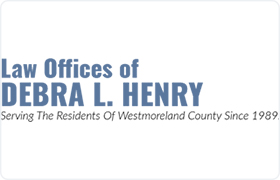Rector Family Law Lawyer, Pennsylvania
Sponsored Law Firm
-
 x
x

Click For More Info:
-
The Law Offices of Debra L. Henry
206 N Main St Greensburg, PA 15601» view mapFamily Law Your Advocates
At the Law Offices of Debra L. Henry, we understand the confusion and complications that come along with any legal matter.
800-941-1880
Includes: Collaborative Law, Domestic Violence & Neglect, Paternity, Prenuptial Agreements
Christopher D Nakles
Defamation & Slander, Estate Planning, Family Law, Litigation
Status: In Good Standing
Amber R. Leechalk
Estate Planning, Family Law, Defamation & Slander
Status: In Good Standing Licensed: 27 Years
James J. Conte
Estate Planning, Family Law, Adoption, Corporate, Business Organization
Status: In Good Standing Licensed: 51 Years
 Debra Henry Greensburg, PA
Debra Henry Greensburg, PA Practice AreasExpertise
Practice AreasExpertise
